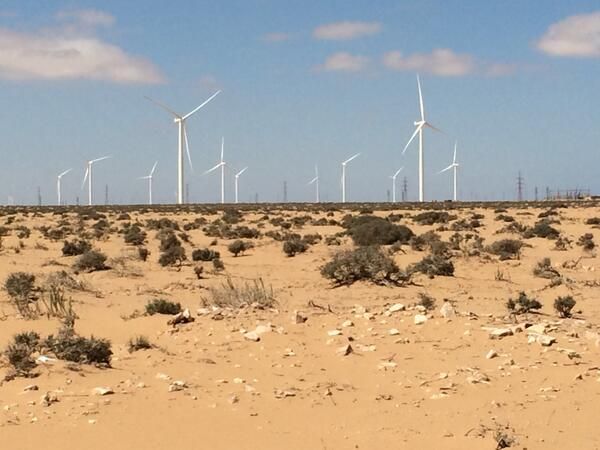Morocco targets 100% renewable energy
Host of COP22, Morocco, is amongst a group of 48 countries that have committed to meeting 100 per cent domestic renewable energy production.

Host of COP22, Morocco, is amongst a group of 48 countries that have committed to meeting 100 per cent domestic renewable energy production.
The 48 countries, united as the Climate Vulnerable Forum (CVF), committed to “strive to meet 100% domestic renewable energy production as rapidly as possible while working to end energy poverty, protect water and food security, taking into consideration national circumstances” at this year’s Climate Change COP in Marrakech.
Over the past few years, the World Future Council has worked with several stakeholders in Morocco to develop a policy roadmap to transition to 100% renewable energy.
In recent years, the Moroccan government has worked to liberalise and boost the renewable energy sector in three ways to hit these targets:
1. A diversified portfolio for solar, wind and hydro anchored in a legal framework.
2. The establishment of institutions to take up the challenges of the energy transition, such as MASEN, ADEREE and SIE.
3. The reform of fossil fuel subsidies – since December 2015, the prices of fuels obey the free play of supply and demand.
Morocco has already achieved great success in the renewable energy sector with the launch of the Noor Ourzazate solar project – the largest concentrated solar power plant in the world – and the Tarfaya wind park which is Africa’s largest wind project.
Moroccan policy-makers, experts and practitioners have now identified numerous actions to set Morocco on a path to 100 per cent renewable energy, foremost to prioritise renewable sources in the energy system and enable new actors to enter the market – both from a legislative and a capacity perspective.
These actions are set out to target 4 key areas:
1. Technical pillar: to integrate renewable energies production on a large scale. This will include the improvement of grid infrastructure, extending renewables to the heating/cooling and transport sectors and strengthening expertise and technical training.
2. Economic Pillar: to embed renewable energy in a national economic development plan. This will include supporting small and medium renewable projects, opening the renewables market to competition and setting a time limit on all fossil fuel subsidies.
3. Political pillar: towards a 100% renewable energy system. This will include favouring the emergence of local projects, building alliances with renewable energy stakeholders and formulating non-discriminatory directives for access to the network.
4. Cultural pillar: to design a strategy enabling society to take renewables into account. This will include strengthening understanding, developing the social dimension within the energy transition framework and providing for awareness raising campaigns.
Climate Leader have congratulated Morocco for its leadership during COP22 and praised the country’s commitment to a renewable future.






